Ondrej Markus
Entrepreneur in ed-tech, building the future of education as a founder and CEO at Playful.
I write about the future of education, designing learning games, and running a startup.
I'm a generalist, introvert, gamer, and optimizing to be useful.
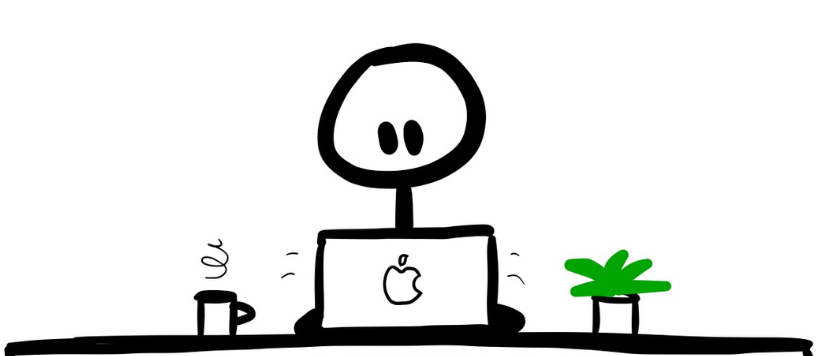
What the work happened #7
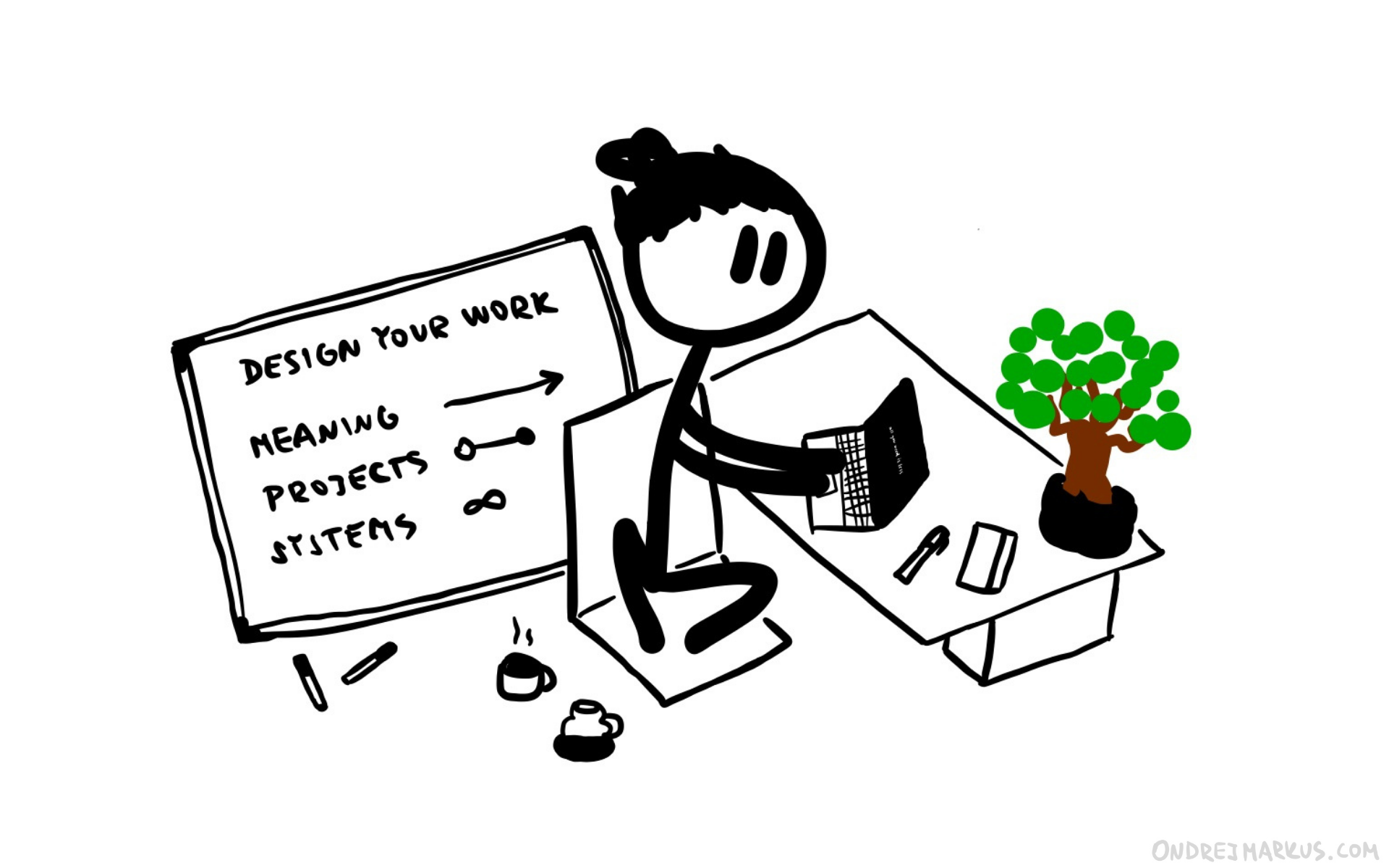
Hey there,
I failed again to write this reflection in a day. Oh well. Drawing stickmen is hard work.
This time, I want to talk about how:
- I started building the best career course on the internet. (Why to aim low, right?)
- I worked on my **** storytelling skills, and I’ll share my favorite resources to help you be a better storyteller.
- I had mixed feelings about my Twitter experience, and I’m talking about what’s wrong and what I’ll do to improve it.
Feel free to go nuts and jump around to what’s interesting to you. Or, if you trust in my design, let’s start here.
Building the best career course on the internet
Most of my work is based on my belief that people should make a living doing something they enjoy.
Why? Because doing work you enjoy every day feels fantastic.
- When you look forward to work every day.
- When you never think, “Oh shit, it’s Monday tomorrow.”
- When your work feels like play, not a chore.
I might not have cracked the code to get rich, but one thing I’m already good at – I’m enjoying the shit out of my work. And if I had to pick just one, I’d pick what I have.
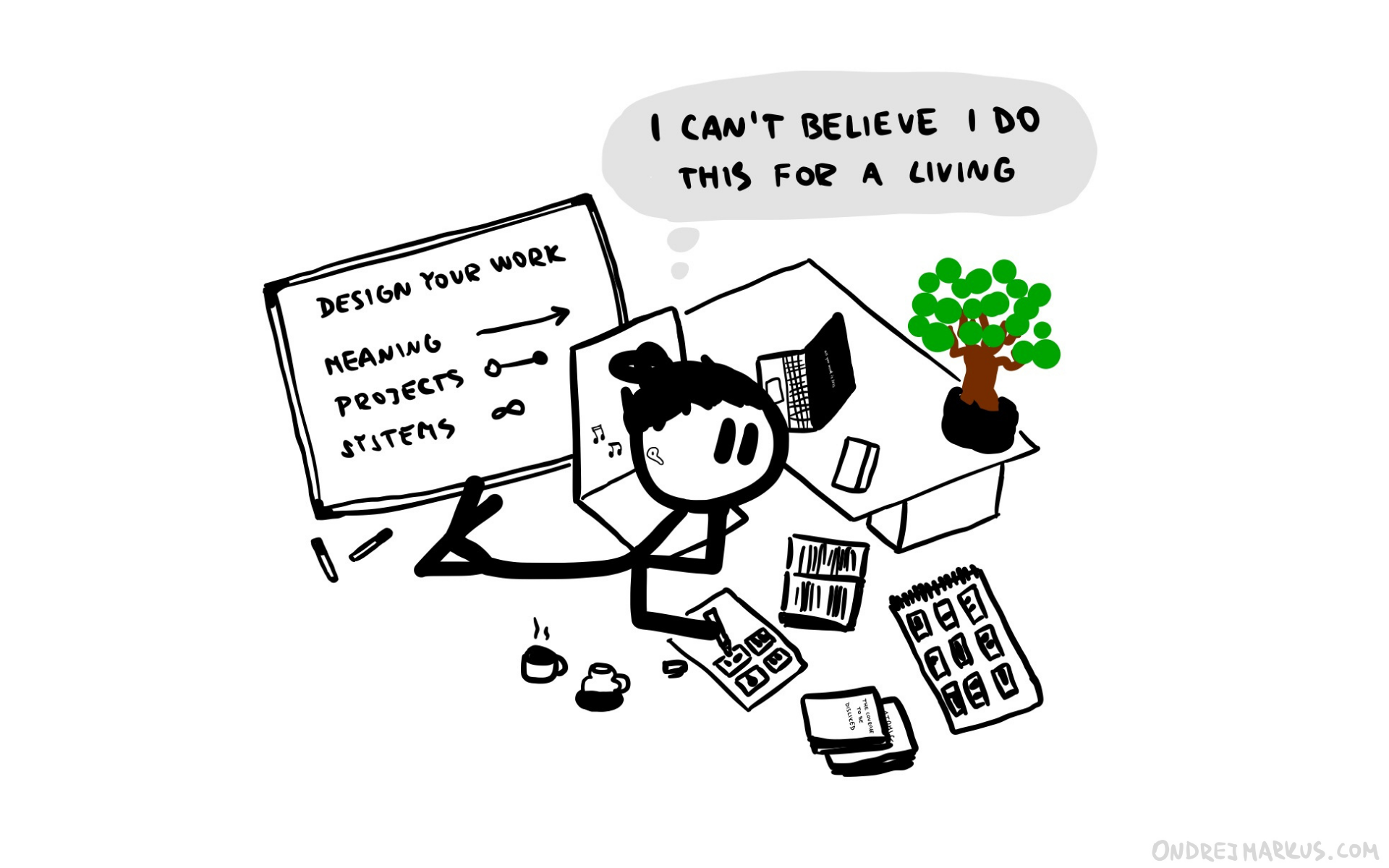
Do work you enjoy doing just because.
It’s one of the best feelings I know, and I want to help people find their version of it. Just imagine if people didn’t have to suffer through 8 hours of their day but actually worked on something they wanted to do.
I had my fill of hating Mondays for 10+ years in school. Nevermore. The heavy feeling in your belly when you have to go somewhere you don’t want to be, do something you don’t want to do, around people you don’t want to be around. I’ve had enough. Life is too short for that.
And yeah, sure, every work is sometimes frustrating when it’s difficult, or when you have to deal with jerks, or you get lost for a while searching for the next project. That’s okay. That’s a part of the game. It wouldn’t be fun if it was too easy.
But if you have to have some problems to avoid boredom, why not choose problems you like to have?
Overcoming obstacles is fun if you love the process – when your days end with you feeling: “Damn, today was awesome. I could just do this forever on repeat, and I’d be happy. I don’t need anything else.”
That’s priceless.
I mean, it’s probably not true because we need change and growth, but it feels incredible nonetheless. It’s worth chasing this feeling. And If I could give this as a gift to every human on the planet, I would. This world would be so much better if everyone was doing what they love.
Be the architect of your work, not its victim
That’s why I’m creating a new course to take people through everything they need to design a better work-life.
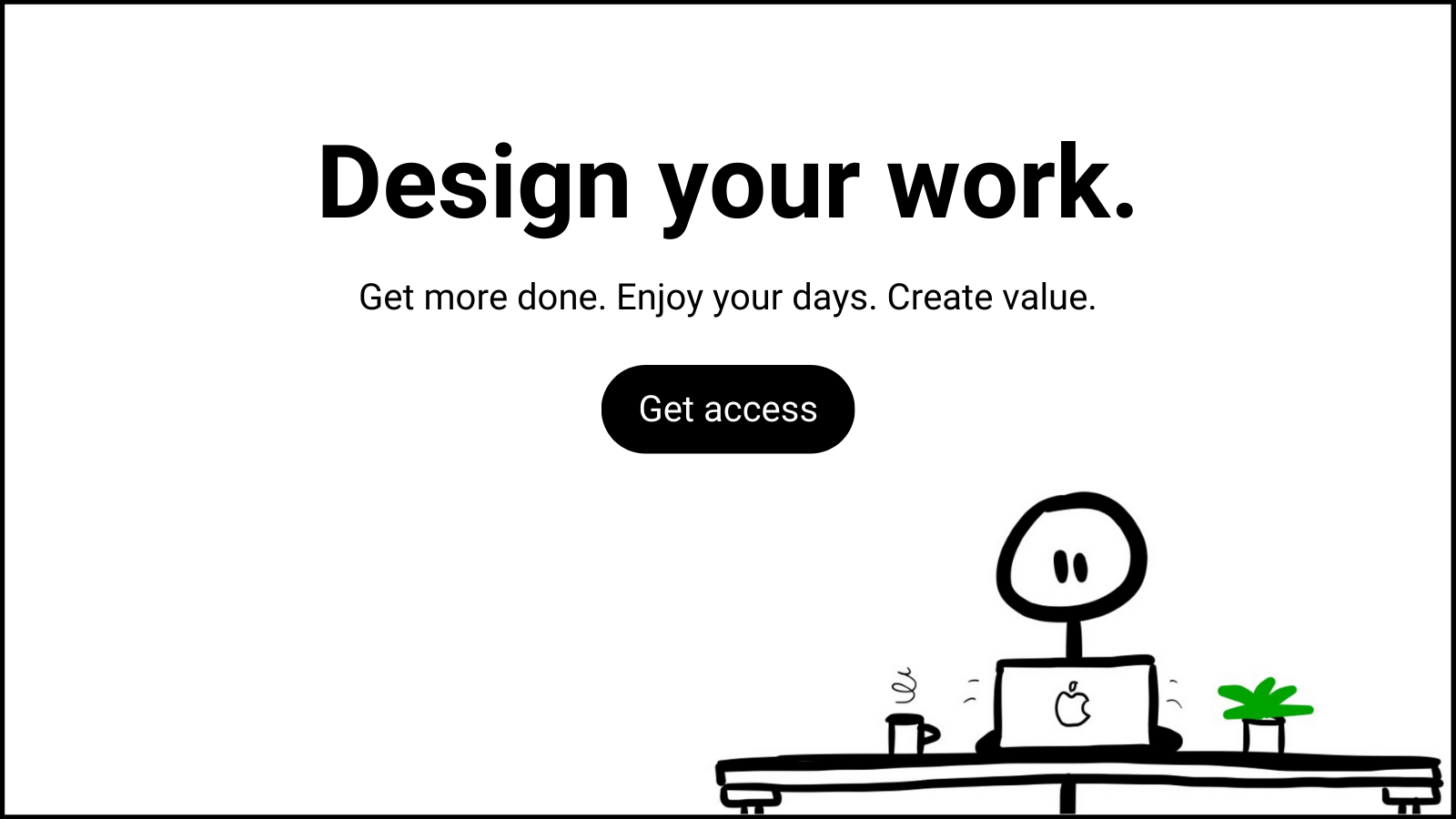
MetaSprint.net (website in progress)
That’s right. Design, not find. I believe in creating more than finding what you love to do. There’s no reason to suffer through your work when you can be its designer.
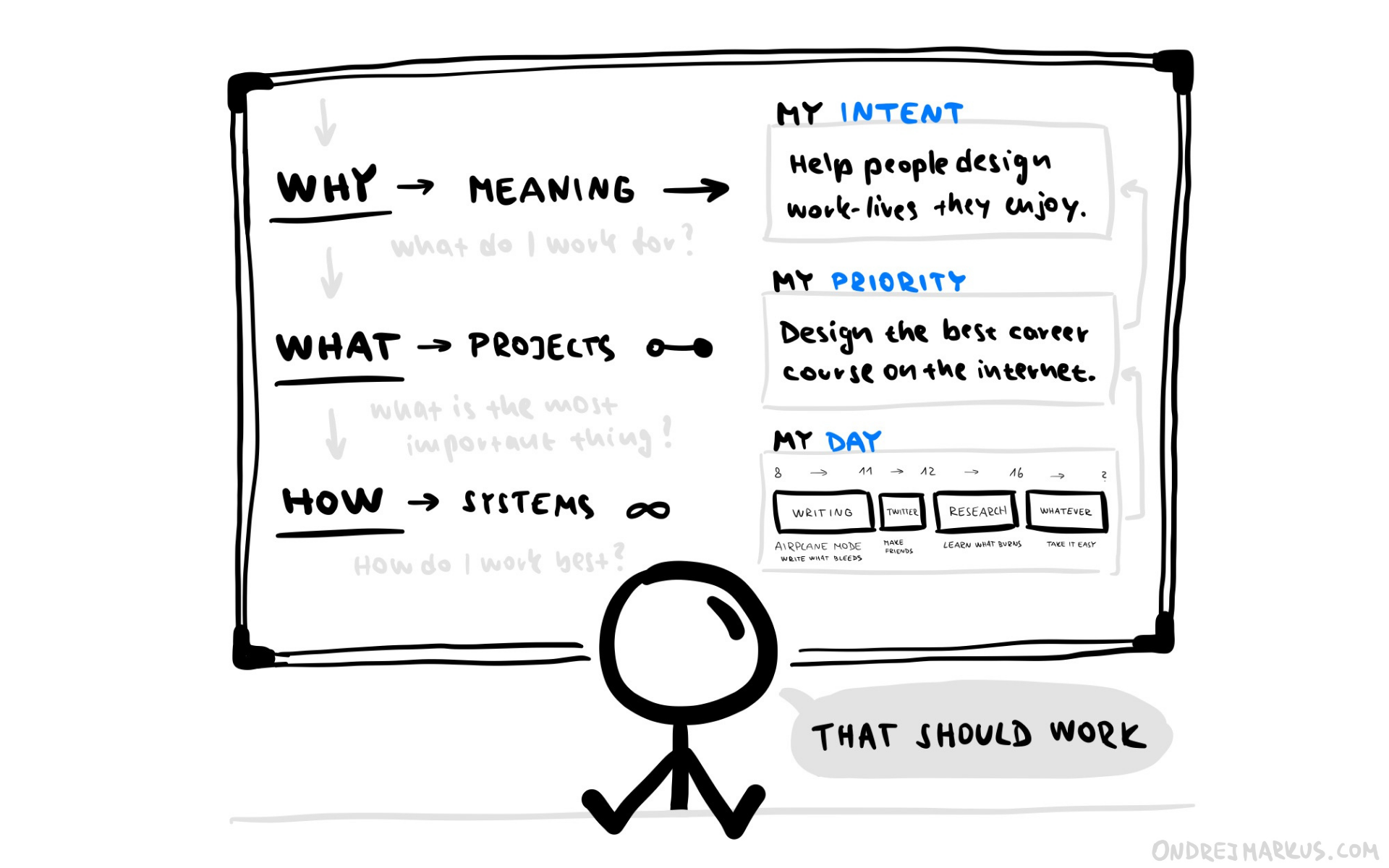
Get things under control. Be more mindful about what you do, how, and why.
So what does it mean to “design a better work-life”?
Well, I look at this question on 3 levels:
- Meaning = Why do you work?
- Projects = What do you work on?
- Systems = How do you work?
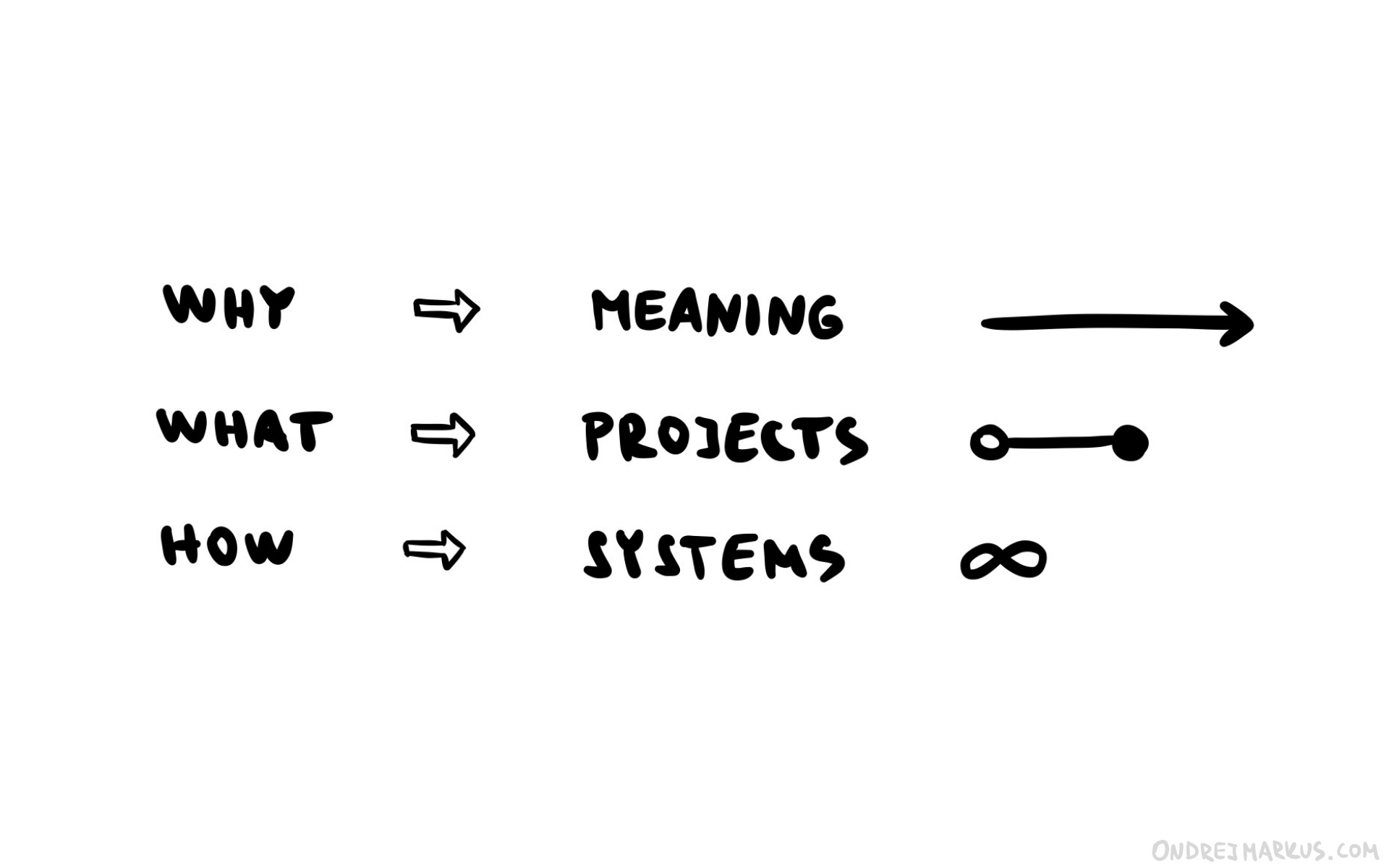
These 3 parts cover the area of work from long-term visions to daily routines – from the big picture to everyday details.
- Meaning is about doing work that fulfills your needs and dreams.
- Projects are about focusing on the right things.
- Systems are about getting the right things done while enjoying your days.
I want this to be the only career course anyone will ever need.
How to create an online course that doesn’t suck
Online courses tend to be crap. Statistics say that most people don’t finish them, and I’m not surprised. I never finished most of the online courses I bought.
So what makes a good online course?
- Succinctness. It’s no longer than it needs to be. No fluff and fillers. Everything has its purpose. Don’t throw 40 hours of material at me just to charge me more if you could tell me in 2 hours. Be considerate.
- Thrill. Can you pull me in? Can you be entertaining while you teach me stuff? Can you deliver dopamine hits at the right time and places? If you can, I will stick around to the end and maybe even learn something.
- Usefulness. Content is king. None of the above matters if the material is not good. I enroll in a course to get value, and if it’s not happening, I’m out of here just after I refund my cash. Every course has to be useful from start to end.
Right now, I have tons of material I’m working full-time to develop into a course that checks all of the above. It’s a huge challenge I’m enjoying while crackling under at the same time.
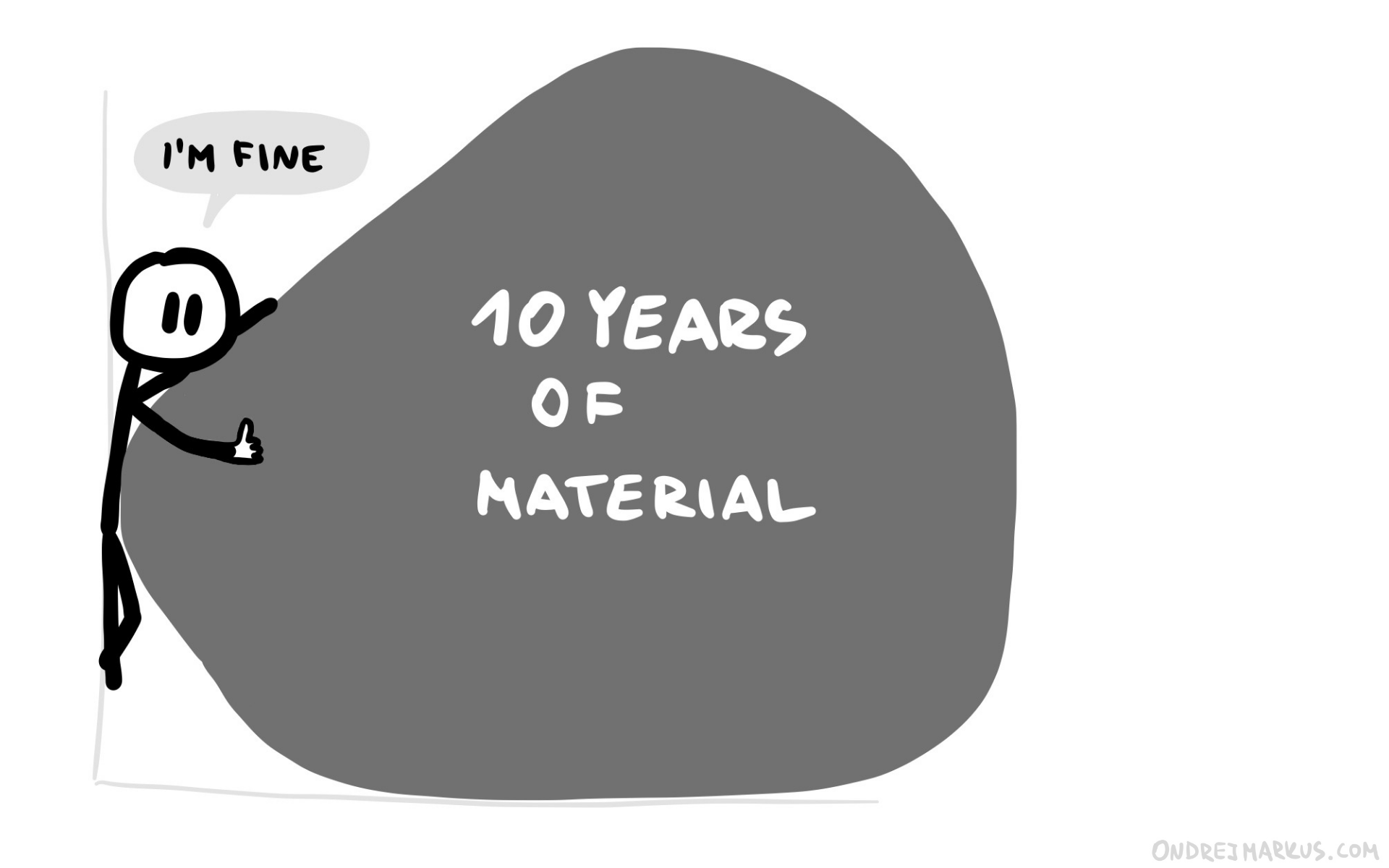
There’s a lot of stuff out there.
So I’m thinking a lot about how to pull this off without losing my shit in the process. My plan is to test and improve the concepts for lessons as tweets and articles before I commit to making high-maintenance content like high-quality videos.
That means I will:
- Tweet a lot about the ideas I’m considering for the course and pay attention to what resonates, what people don’t understand, and improve them. Twitter is an excellent tool for refining ideas because it forces you to be brief.
- Write articles from ideas that feel strong enough to be explored further. Writing an article is one of the best ways to sharpen your thinking about anything because you’re trying to explain it to others. Teaching is the best way to learn anything.
- Create short videos with me explaining ideas while drawing them on my iPad. This pushes my comfort zone from text to video, which is more fun to follow than articles. Also, making short videos from text demands zooming in on the essence of the material.
- Coach people 1:1 on designing their work-life to better understand how these ideas work in different situations. Coaching is mostly listening and asking good questions, which is useful for a deeper understanding of the problems you’re trying to solve.
This fast iteration process should help me find the best ideas and how to communicate them effectively. Plus, even if I decide to change my plan and do something else, this loop will create value for me (in learning) and others (in content) as it happens. I can’t lose this way.
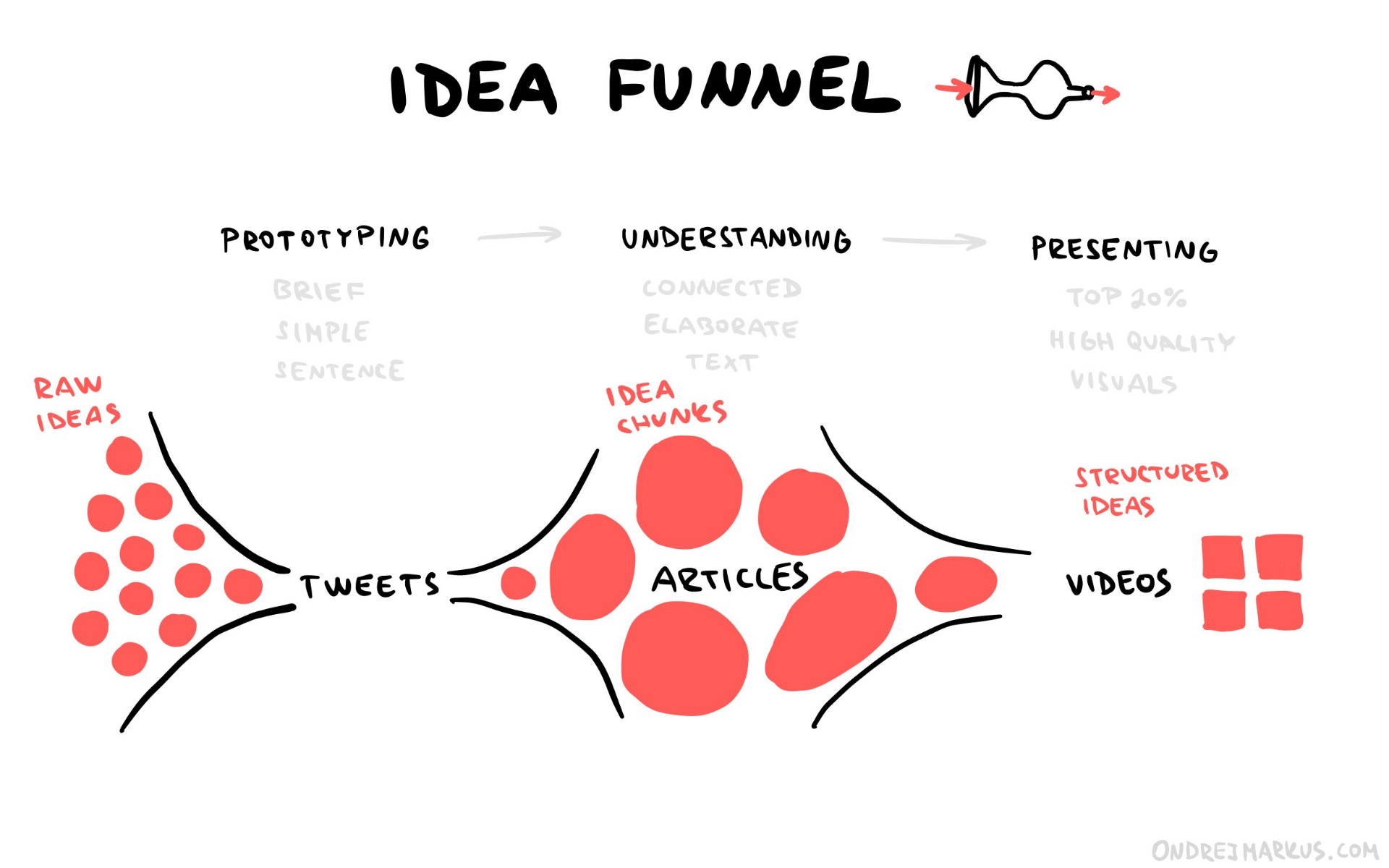
This almost makes sense. (It’s work in progress.)
My current vision for the final product is a self-paced course with 30+ short videos where I explain and visualize the lessons as stories in about 5 minutes. Plus there will be instructions with worksheets and templates you can use to start applying the stuff immediately.
I’d like to structure the course to be always easy to continue. The next step would only take a few minutes. But it also needs to be actionable, so people actually DO things that impact their lives, which is hard to accomplish anywhere, and even more so in an online course.
It’s a big challenge. But just thinking about this project makes me chuckle with excitement. I want to design the best career course on the internet.
If you want to help me, check out the landing page I just published. It’s an early draft that’s going to change many times. So don’t be afraid to rip it apart, and tell me what does and doesn’t work for you. I want your opinion.
And if you like my vision for the course, you can subscribe here to get a special offer when it’s ready. I’ll never forget early supporters. (I have a special list.)
Moving on.
Everyone needs to be a better storyteller
Skillful storytelling fascinates me. That’s why I started paying more attention to people who are exceptional at it.
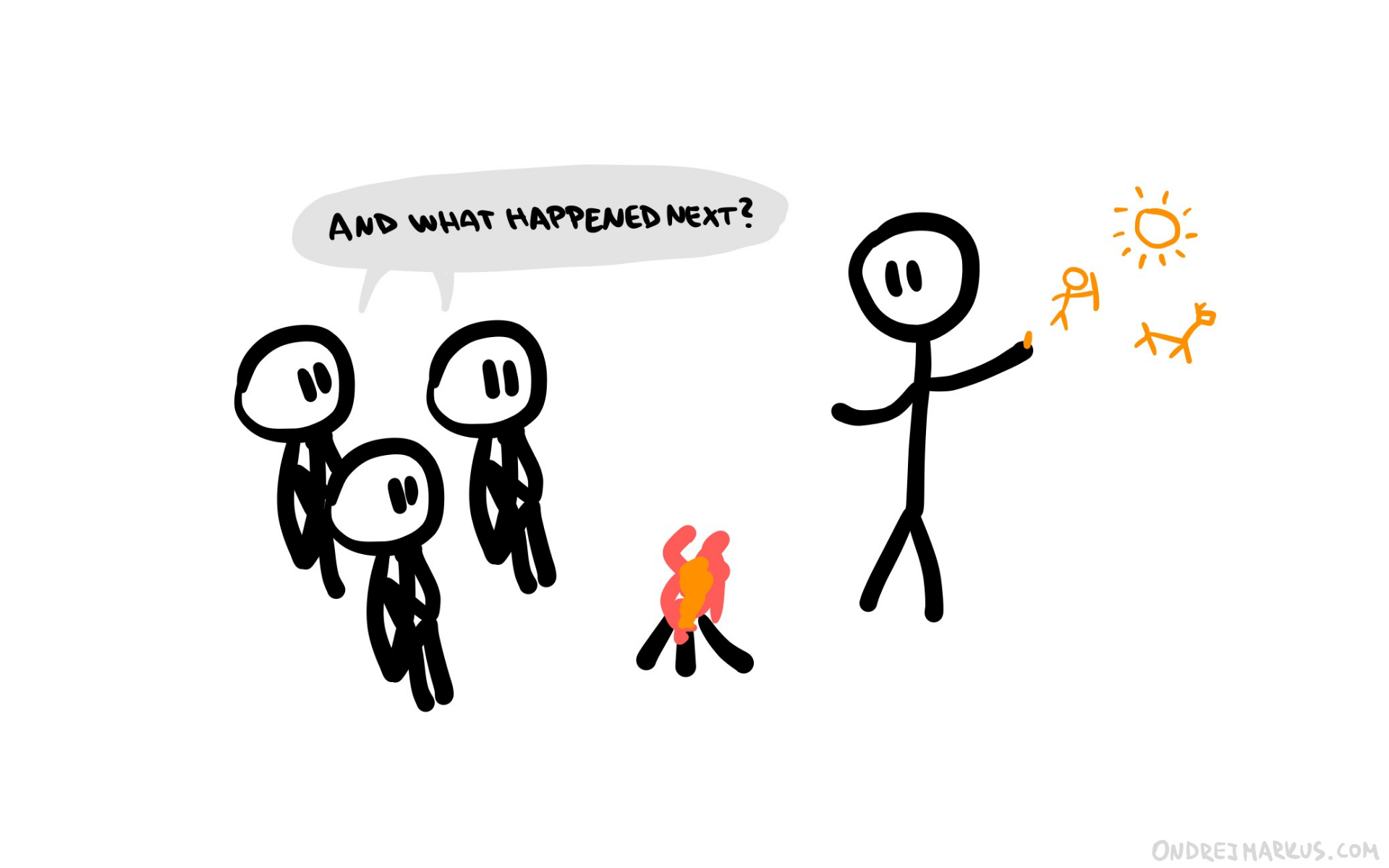
We are born storytellers. We just need to practice.
I’m looking at how standup comedians think about storytelling. I’m looking at Pixar and how they craft their stories. And I’m looking at writers who are masters of using storytelling as a vehicle for what they’re trying to say (like the maker of Rick and Morty).
Storytelling is everywhere.
But I don’t want to give you a lecture about storytelling. I just started learning about it. So what I’m going to do, is share the best material for becoming a better storyteller I found this month.
- Level 1 (start here): Brains podcast with Tim Urban and Jason Silva – This is something you can listen to while doing something else. A great place to start without much effort.
- Level 2 (if you want more): Julian’s deconstruction of storytelling – This is an article, so you have to put more work into it. But it’s well worth the read if you want to understand how masters storytellers grab your attention and don’t let go.
- Level 3 (you want to go deep): The Art of Storytelling by Pixar **** – A free online course from storytellers at Pixar who might be the best in the movie industry. It takes 2-3 hours, and it’s partially about visual storytelling. I binged it in one evening. So good.
Storytelling is one of the most crucial skills for creating value in any form. It helps you to be more entertaining and persuasive. Not even mentioning the fact that telling good stories makes you a better companion in almost every social situation. Everyone loves to be around a good storyteller.
Get better at storytelling. It’s worth your time, no matter what you do.
An introvert struggling with Twitter
I’m trying to build a network of peers and fans around my work on Twitter. But I’m still at the very beginning – an introvert bootstrapping a network from scratch. Fun stuff.
So what’s the problem?
The problem is, I’m not enjoying Twitter as much as I’d want to. And this is a problem because I’m shit at doing what I don’t enjoy doing. Once I don’t enjoy something, it usually fails horribly.
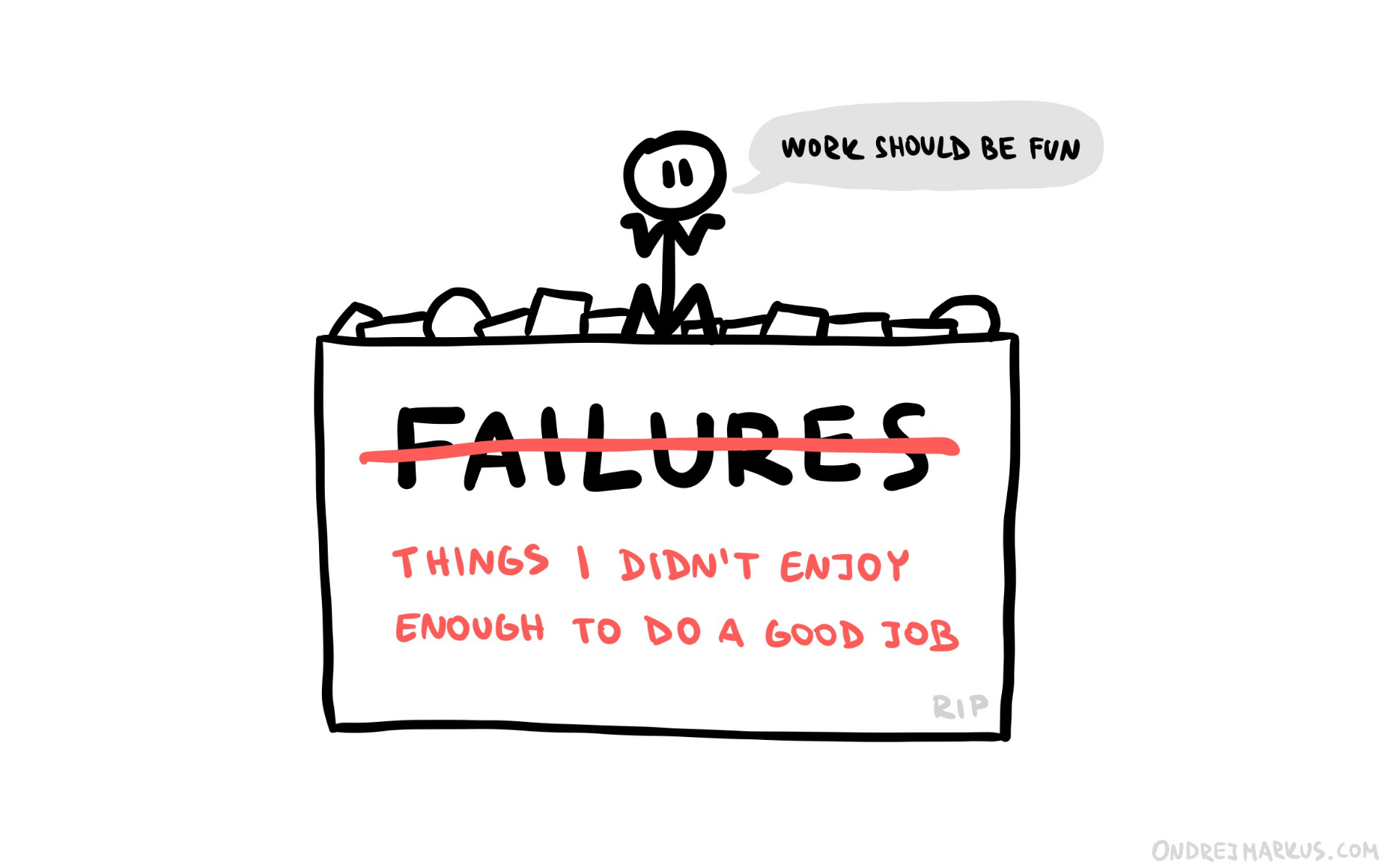
I’m gonna die defending this hill. Work should be fun.
But I still believe in Twitter as a place to share your work, and I don’t want to quit – at least not yet. And that means I need to find a way to enjoy my daily Twitter experience.
To build a network on Twitter that will help you succeed as an online entrepreneur, you need to commit a lot of time and energy over months and years. Building relationships is a marathon, not a sprint.
It’s particularly challenging if you’re an introvert like me who, on most days, doesn’t feel like socializing with strangers. Turning strangers into familiar faces takes effort I’m not always willing to spend.
So, honestly, I didn’t do a great job on Twitter over the last month. It was too hard. My day-to-day feelings fluctuated between two extremes:
- Extreme 1: I go on Twitter, and it feels great. I dive into conversations and get high on fascinating ideas. I feel inspired. I reach out to people, tweet something, people reply with their points of view. Amazing.
- Extreme 2: I go there, and it feels weird. It’s like everyone’s kiss-assing someone else to get attention or sell something. I’m thinking: “Eh. I don’t want to be here. This place doesn’t make me feel good at all.” I force myself to do the bare minimum. I check the notifications, reply to comments and messages, and I get the fuck out of there.
So, I feel torn.
You see, the good days are giving me the hope that I can design the experience to be more reliably enjoyable. The good stuff is out there somewhere. I just need to filter out the noise.
Of course, sometimes I’m just not in the mood, and that’s fine. That’s just who I am. But I want to tip the balance towards an experience that makes my day better, not worse.
I think it’s like what they say about relationships: You have to have at least 5 positive interactions to 1 negative. If you do, let’s get married. If not. Bye-bye, nice to meet you.
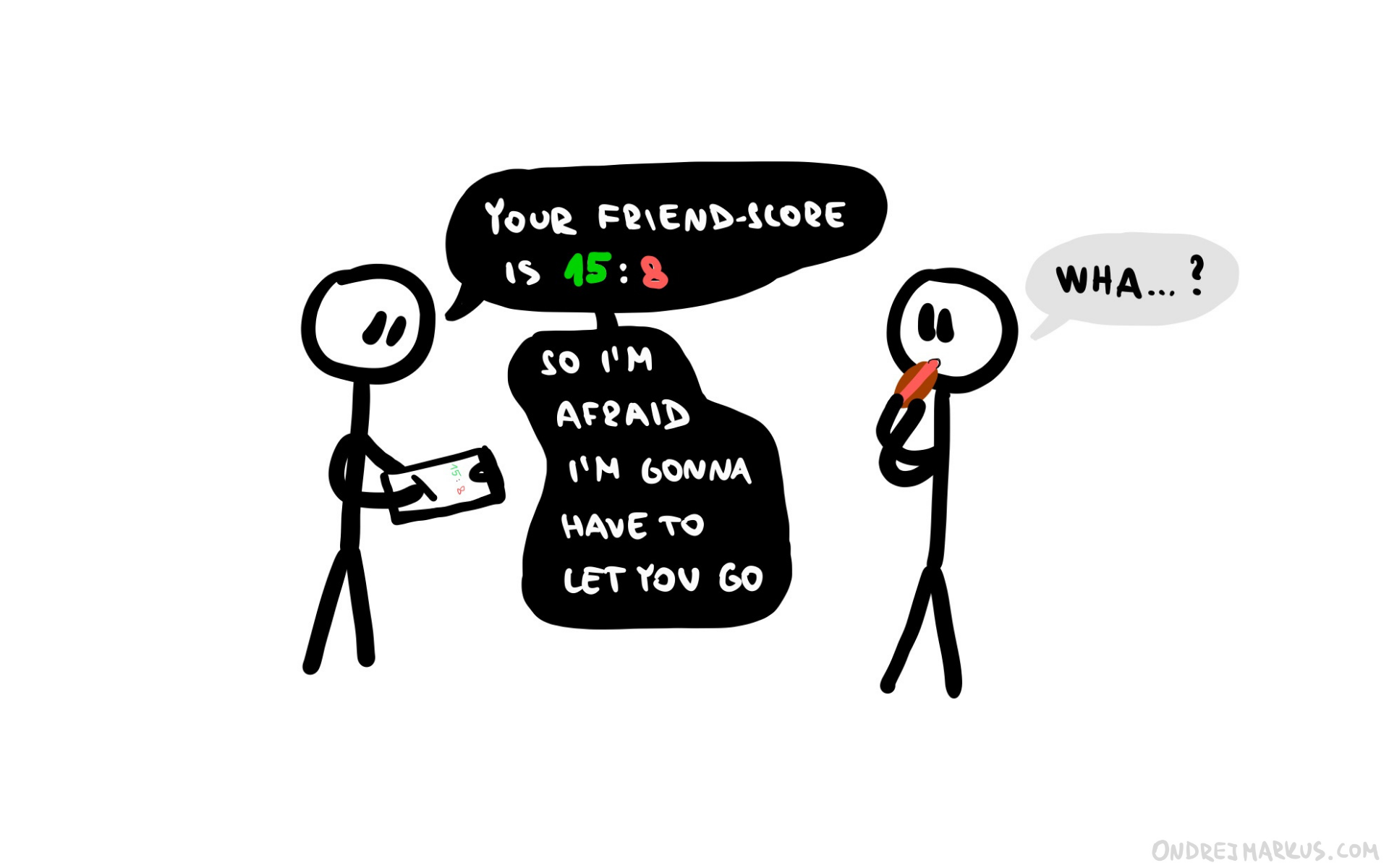
Good math makes good friendship.
So what did I am I doing to improve my Twitter experience?
- More aggressively muting or unfollowing people whose tweets don’t add value to my feed. It seemed rude at the beginning, but I’m now at the point where I would stop going there because of the noise, so whatever. It’s a do-or-die situation.
- People tell me to use lists, but that feels like a lot of extra hustle. I don’t want to create lists. My feed needs to work without lists.
- I set the feed to show the newest posts instead of “the best” posts of whatever it’s called. There were too many offtopic recommendations I didn’t like.
Any ideas? (Email me.)
Now, let’s look at the numbers.
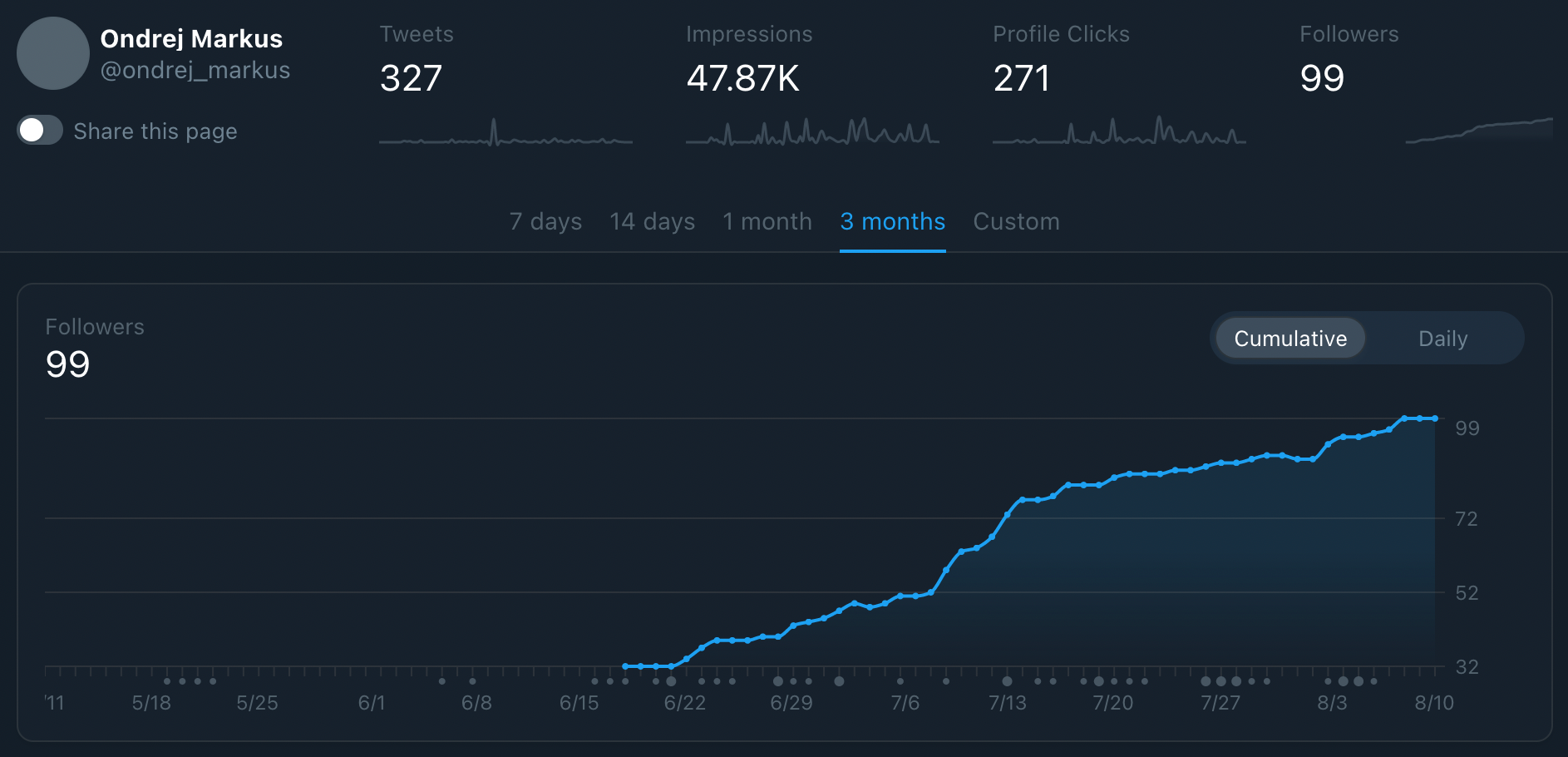
I use Typefully.app
Since I started playing the Twitter game about 2 months ago, I went from practically 0 followers to 99 (today).
Around 30 of those are meaningful connections (meaningful = people I talked to 1:1 for more than a quick “hello”).
The rest are people who followed me probably because they saw my tweets or comments. And either none of us reached out to one another, or they don’t have DMs open, or they didn’t reply to me when I said hi.
I get it. Some people prefer a passive Twitter experience – watching only, no talking. Fine with me. A part of me would like it too. But that wouldn’t help me achieve what I am there to do.
What I’m going to try next:
- Tweet more (1-3 a day) to test the ideas for the new course. (Threads seem to work much better for engagement than single tweets btw.)
- Keep replying to large accounts when I have something interesting to say. Random people follow as a result, and maybe 1 out of 5 of them turn out to be a real connection.
- Engage more often with people 1:1 after we connected. Video is a great way to level up the relationship in a matter of minutes. But this also costs me a lot of energy, so I’m not able to do this more than once a week on average.
I don’t care that much about growing fast on Twitter. I mean, it would be nice and all, but I’m not willing to put the work in right now. I’d prefer to find 100 people who really want to hear what I have to say and talk about it with them.
I will focus on tweeting consistently, writing articles, and slowly attracting people interested in what I do.
The big thing to build up my Twitter for will be launching the course. But we will come back to it in a month or two. There’s more work to be done.
Alright. That’s it for July. There was more, you know, but I try to keep these emails crunchy and talk only about what’s interesting.
Now, if you think: “Damn, I enjoyed this.”
Firstly: I’m glad, thanks.
Secondly: It would mean the world to me if you spread the word about the new course on your platform of choice.
Just copy the URL (MetaSprint.net) and tell people something like: “Check this shit out. It’s coming for you.” Or whatever you like to say. I don’t know how people do this. :D
Have a good one.
Byyye.